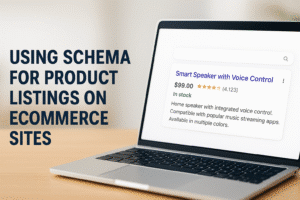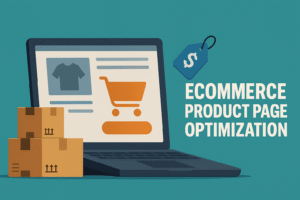It may not be the most exciting part of running an online ecommerce store, but order fulfillment is one that has a massive impact on the success and profitability of an ecommerce business. How quickly and efficiently orders are packaged and shipped out to customers has a direct impact on the customer experience and whether or not customers will tell their friends about their experience, leave positive (or negative) reviews, and order from you again in the future.
Thanks to the Amazon effect, customer expectations have shifted in the past 10 years when it comes to the speed and cost of shipping. People expect to be able to receive things fast and at little to no cost.
A few statistics you should be aware of as an ecommerce business owner:
- 25% of shoppers say they have canceled an order because the delivery was too slow.
- 53% of shoppers say that the delivery time is an important factor when it comes to deciding whether or not to place an order online.
- The #1 reason why people abandon their shopping cart is if they see unexpected or higher than expected fees on checkout.
When consumers want something, they want it now.
As sellers, meeting those demands should be a top priority.
What is Order Fulfillment?
Order fulfillment is the process of receiving an order from a customer, picking the items they have purchased (and getting them ready for shipping), and then shipping those items to the customer.
This includes all aspects of fulfilling orders including: packing, labeling, handling charges, shipment tracking, refunds/returns/exchanges, etc.
Deciding Which Ecommerce Order Fulfillment Model to Use
There are three common methods of order fulfillment for an ecommerce business to use. Selecting which option is best will depend on multiple factors, including your order volume, the products you sell, and how much of the process you want to manage yourself.
In-House Order Fulfillment
Perhaps the most common option is self-fulfillment or in-house order fulfillment. With in-house fulfillment the ecommerce business manages the entire fulfillment process from start to finish.
This is usually the method most businesses start out with. Sometimes, especially in the case of a very small startup, the name is even more literal with order fulfillment being completed in the business owner’s home.
In-house fulfillment can be a good option for companies that:
- Have a limited number of products and/or SKUs (stock keeping units)
- Don’t need to offer customers multiple shipping options
- Don’t sell very many items that require custom packaging or special handling procedures
Self-fulfillment will require:
- Storage space for inventory
- Hiring and Staffing (including having workers’ comp and liability insurance)
- Purchasing necessary equipment
- Licensing warehouse management software to manage inventory and order statuses
Many people think that an advantage of self-fulfillment is that it can be low cost. While that can be true for very small businesses, there is still a cost in time. Time that could be spent on marketing or other aspects of the business. As the business grows and things like inventory storage space and staffing are needed to complete the order fulfillment process, the costs increase dramatically.
It does offer 100% control of inventory and the entire process, which can be seen as an advantage. That also could be seen as a disadvantage because of the time it takes to manage the process.
As a business grows, some business owners start to feel like they took on a second job as the entire order fulfillment process becomes almost like running its own separate business.
Third-Party Order Fulfillment
If you find you are spending too much time packaging orders and not enough time promoting and making sales, a third-party fulfillment partner may be the best option for you.
With third-party fulfillment you outsource your order fulfillment process to a company that specializes in providing online retailers with this type of service. They will take care of all aspects of picking, packing, shipping, returns/exchanges, etc.
There are many benefits of using a third-party fulfillment service including:
- Access to high-level expertise in the industry
- Lower storage costs for your business by not having to purchase warehouse or fulfillment center space
- The ability to grow without having to find new storage space
- Some businesses can purchase in larger quantities and save money by leveraging the increased storage space offered by the third-party fulfillment provider
- Reduced liability insurance because you do not have employees handling customer orders that could result in an accident, injury, etc.
By combining the shipping volume of all of their customers, 3PL’s can negotiate better shipping rates with carriers including USPS, UPS, FedEx, and DHL. These discounts will be greater than you can negotiate on your own and may allow you to offer things like free 2-day shipping at an affordable rate.
Dropshipping
Dropshipping is the process of when the retailer doesn’t keep the products in stock, but instead transfers customer orders and shipment details to a third party.
When choosing this option your business would not have to purchase inventory or manage order fulfillment. This is one of the most popular methods for small businesses that do not wish to invest in inventory. It can be appealing because you don’t have to purchase, store, or manage products. This option is perfect for new startups or businesses with a smaller budget.
The major downside of dropshipping is that the orders are being shipped directly from the manufacturer, which is often overseas. This means longer order times and you will not have the opportunity to customize your packaging in any way.
Making Your Choice
Many times the final decision comes down to where your business is in its life cycle. Dropshipping is typically only appealing to startups or businesses looking to prove that there is a market for a product before really diving in.
In-house fulfillment is great for established businesses with access to warehouse space and manpower to fulfill orders. There is often a greater cost with in-house fulfillment because of the employees needed to handle and manage the fulfillment process.
Third-party fulfillment is often the right solution for mid-size to large companies looking to grow and have a storage and fulfillment capacity that can scale with their growth.









